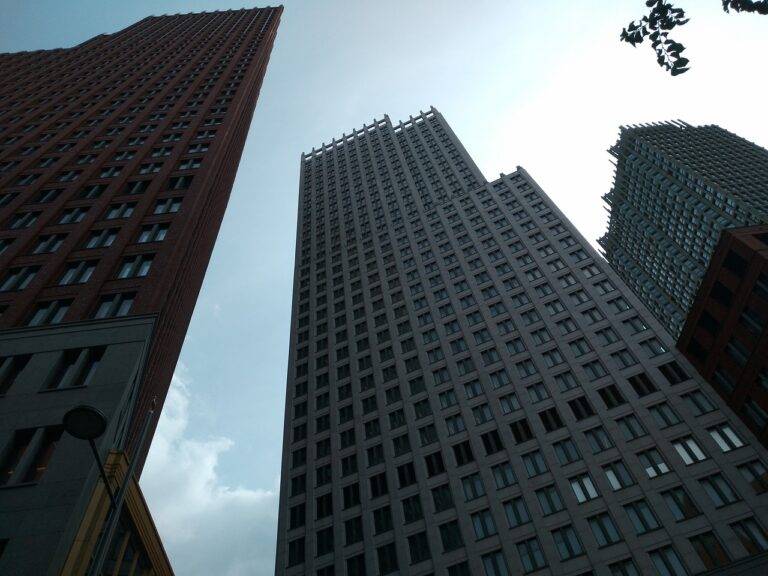The Rise of Modular Construction in Commercial Building Projects: 11xplay.com online, India 24 bet login, Skyinplay login
11xplay.com online, india 24 bet login, skyinplay login: Modular construction has been steadily gaining popularity in commercial building projects over the past few years. This innovative construction method involves creating building components off-site in a factory-controlled environment and then transporting them to the construction site for assembly. As more developers and contractors realize the numerous benefits of modular construction, it is quickly becoming a preferred choice for commercial building projects of all sizes.
Why Modular Construction is on the Rise
There are several key factors driving the rise of modular construction in commercial building projects. One of the main reasons is the significantly reduced construction timeline. Since modular components are fabricated off-site while site preparation is underway, construction can be completed up to 50% faster than traditional building methods. This not only saves time but also reduces labor costs and allows for faster occupancy and return on investment.
Modular construction also offers greater predictability and efficiency in the building process. Because the components are built in a controlled environment, there is less risk of weather-related delays and other unforeseen complications that can often plague traditional construction projects. Additionally, the quality of modular construction is typically higher since each component is precision-engineered and fabricated to meet strict industry standards.
Another advantage of modular construction is its sustainability benefits. By constructing building components in a factory setting, material waste is minimized, and energy usage is more efficient. Additionally, the ability to reuse and repurpose modular components makes it an environmentally friendly choice for commercial building projects.
The flexibility and versatility of modular construction also make it an attractive option for developers and contractors. Modular components can be easily customized and adapted to fit a wide range of design requirements, allowing for greater creativity and innovation in commercial building projects. Whether it’s a retail space, office building, or hospitality establishment, modular construction offers endless possibilities for creating unique and functional spaces.
Challenges and Opportunities
While modular construction offers many benefits, there are also some challenges that need to be addressed. One of the main challenges is the need for proper planning and coordination between all stakeholders involved in the project. Since modular construction requires precise coordination between the design team, fabricators, and contractors, effective communication is essential to ensure a successful outcome.
Another challenge is the initial investment required for setting up a modular construction facility. While the long-term cost savings are significant, the upfront investment can be a deterrent for some developers and contractors. However, as the popularity of modular construction continues to grow, more companies are investing in modular construction facilities to meet the increasing demand.
Despite these challenges, there are numerous opportunities for growth and expansion in the modular construction industry. With advancements in technology and innovation, modular construction techniques are becoming more sophisticated and efficient. This opens up new possibilities for creating larger and more complex commercial building projects using modular construction methods.
FAQs
1. What types of commercial building projects are suitable for modular construction?
Modular construction can be used for a wide range of commercial building projects, including office buildings, retail spaces, healthcare facilities, schools, and hotels.
2. How long does it take to complete a modular construction project?
The timeline for completing a modular construction project can vary depending on the size and complexity of the project. In general, modular construction projects can be completed up to 50% faster than traditional building methods.
3. Are there any limitations to modular construction?
While modular construction offers many benefits, there are some limitations to consider. For example, certain design features and architectural elements may be more challenging to achieve using modular construction methods.
4. Is modular construction more sustainable than traditional construction methods?
Yes, modular construction is considered more sustainable since it reduces material waste, energy consumption, and carbon emissions. Additionally, the ability to reuse and repurpose modular components makes it an environmentally friendly choice for commercial building projects.
5. How can I get started with a modular construction project?
To get started with a modular construction project, it’s essential to work with experienced contractors and fabricators who specialize in modular construction. They can help you navigate the design and construction process to ensure a successful outcome.
In conclusion, the rise of modular construction in commercial building projects is a trend that is expected to continue in the coming years. With its numerous benefits, including reduced construction timelines, greater efficiency, sustainability, and flexibility, it’s no wonder that modular construction is becoming the preferred choice for developers, contractors, and investors looking to create innovative and cost-effective commercial spaces. As technology continues to advance, we can expect to see even more growth and opportunities in the modular construction industry in the future.







